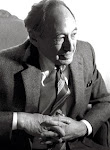Dissociation of Ideas, #5
Distinguish between wealth, illth, and money.
Wealth is best conceived as all the changes in the “natural” (prehuman) environment that are to the benefit of humanity and/or other life forms. A bridge that gets you across the river without your having to stop and build a raft is wealth in this sense. So is an airport. So is the furniture in your house. Think of ten other examples.
Illth, a term coined by John Ruskin, can be conceived as all the changes in the environment that are detrimental to humanity and/or to life itself. Weaponry, then, should be classed as illth, not wealth. Think of ten other examples.
Money is neither wealth nor illth but merely tickets for the transfer of wealth or illth.
Proof: if all the money disappeared overnight, the national standard of living would not change (whatever happened to individuals in the interim); things would be back to normal as soon as the Treasury printed more tickets. But if all the real wealth and illths—all the industrial plants, natural resources, roads, communications, and “real capital” generally—were to disappear, we would be plunged back into the Stone Ages and no issue of currency would improve the situation.
Note also that for all the “real capital” to disappear, all the technical knowhow in human heads would have to vanish. No economist, to my knowledge, has tried to calculate how much of our “real capital” consists of ideas in human heads (brain power) and/or of canned ideas stored in libraries or on tape. A reasonable guess is that 90 per cent of our wealth and illth consists of such brain creations.
Arthur
RAW at Wikipedia




No comments:
Post a Comment